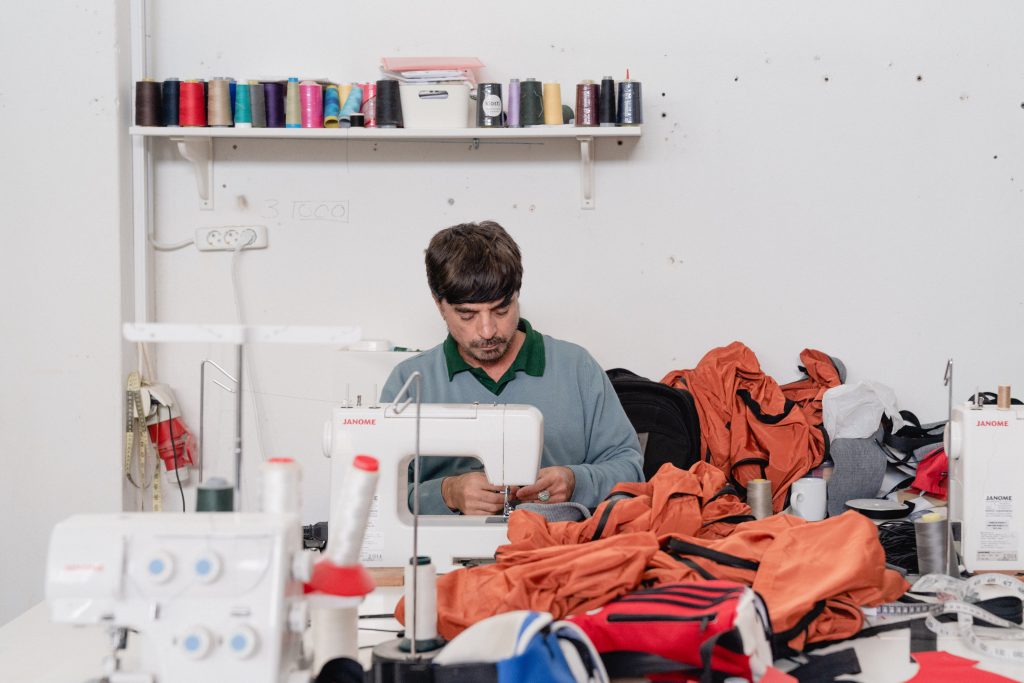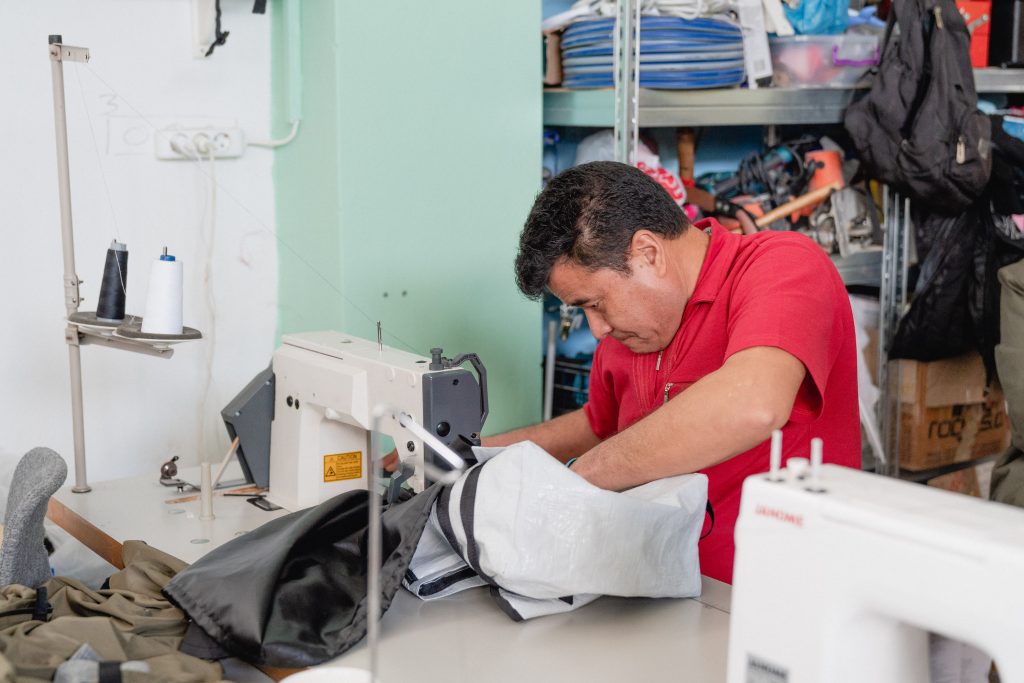Adiff Makes Impactful Garments from Remnants of Crisis
We speak with Angela Luna about creating opportunities from disaster

Minutes away from Eftalou Beach on the Greek island of Lesvos, hundreds of thousands of life vests and tents lie in the crook of an ancient hill. A dumping ground for the survival gear that sustained refugees through their arduous journeys from Syria, Afghanistan and nations in between, the “Lifejacket Graveyard” is an unintended memorial to the ongoing migrant crisis. When Angela Luna—the founder and creative director of outerwear and accessories label Adiff—visited the site in 2016, she was taken aback by its scale and significance. “The only way to get there is to hike up this hill. When you reach the top, you see several New York City blocks’ worth of life vests,” she recalls. “It’s heartbreaking to think about the experiences of the people who wore them.”

The Parsons School of Design graduate was in Greece to explore the viability of her senior thesis collection Crossing The Boundary—a range of functional, ready-to-wear items made with refugees’ needs in mind. (Jackets that can turn into sleeping bags and flotation devices, for example). The project has since become Adiff, a collection of accessories and outerwear that transforms into tents, all made of upcycled life vests and UNHCR tents sourced from the Lesvos site Luna visited in 2016.

Made by resettled refugees in an Athens facility managed by the non-profit Do Your Part, the nascent label’s survivalist pieces champion design circularity and create social impact. For Luna, it’s imperative to address these in tandem, as garment industry waste and pollution fuel climate change which undoubtedly impacts migration around the world. Luna and her business partner Loulwa Al Saad’s holistic and forward-thinking vision also earned Adiff a $55k prize and a one-year complimentary studio in Brooklyn’s Industry City at the end of the CFDA’s Elaine Gold Launch Pad residency program.

With this jolt of capital fueling the label’s next moves, Luna and Al Saad are shifting focus to fully acquiring the Athens facility where Adiff is currently produced. Run by five full-time staffers—who oversee the process of cleaning and disassembling the discarded materials and stitching them into new garments—the workshop is the model for one that the duo hopes to open one day in the US.
“It is possible to prioritize impact and revenue. Private business is capable of creating larger change in the world,” Luna attests, noting the importance of leveraging one’s economies and larger industry to combat humanitarian crises. “The reach of private companies like Facebook, Apple, and Google in our daily lives is immense. Imagine if they had a social mission tied to their business. Their impact would be global.”

While the number of one-for-one businesses like Warby Parker and Toms has grown over the years, private companies focused on creating opportunities for marginalized communities are less common. “Donation-based models are easy for consumers to understand, but it doesn’t create the most impact you can have as a company,” Luna explains. “It’s the longterm solutions like empowerment through job creation, making the right choices in the supply chain or operations, that make the greatest impact.”

This approach ensures that Adiff’s customers trigger larger, longer-term change through their purchases. It’s difficult to communicate that in the age of superficial, instant-gratification shopping. The emotionally heavy materials Adiff is wrought with doesn’t make it any easier—why would consumers want to wear materials that are inextricably linked to a refugee’s struggles? “Hope,” Luna answers. Each of these jackets found in Lesvos carries the poignant stories of incredibly brave people. “These jackets were sitting in a landfill and they’re now being given a new purpose by refugees themselves,” she continues.
Adiff is where everything comes full circle: displaced individuals and the material objects that helped them reach a life are reborn. “Our production manager Daoud has no sewing or tailoring experience,” Luna says (he’s the brand’s only staffer who’s not trained in the garment business). “But he used to work for the US military in Afghanistan and his English is impeccable.” Daoud’s communications skills make him invaluable to Adiff’s operations. He’s gone from cleaning and sorting life vests to running the facility. His differently experienced peers are now teaching him how to sew. “This is about creating opportunities from a disaster as opposed to using the disaster in a negative way,” Luna says in an impassioned tone. “This is about looking to the future.”












